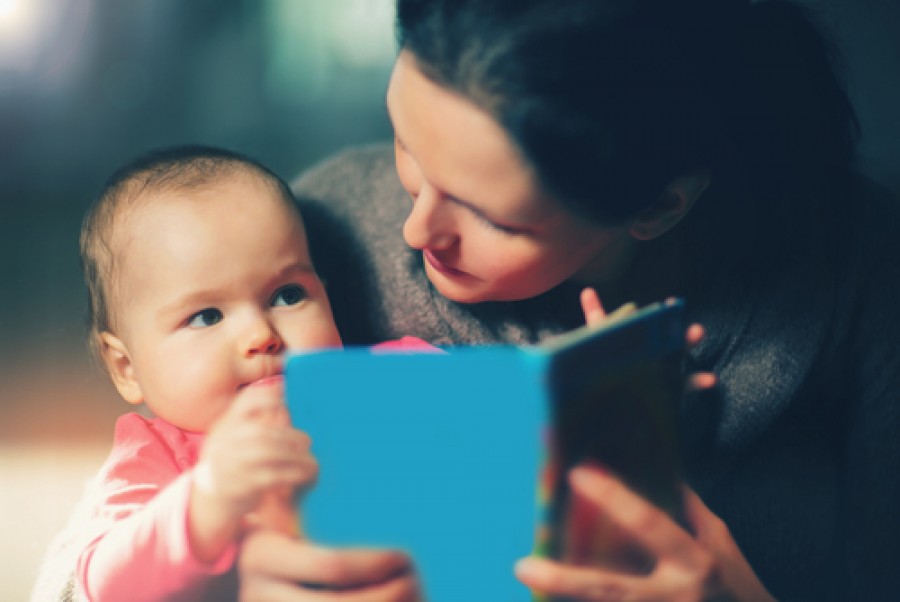Caring For Babies With Sensitive Skin

For most new parents, washing and bathing your newborn baby the first few times can seem like daunting task in itself! Your newborn seems so fragile and delicate and it can seem impossible to give them a proper bath without causing havoc in some way!
But that fear soon disappears, and bathtime is a fun, bonding session for parents and their new addition to the family.
The next step to give some real thought to are the products that you’re using with your baby. All babies have soft, delicate skin and many babies will experience some form of sensitive skin irritation or condition, especially as newborns. Knowing what to look out for, what can make sensitive skin worse, and the best products to use, can make all the difference.
How do I know if my baby has sensitive skin?
As mentioned, all babies have soft delicate skin, but some babies may seem ultra sensitive to different products or environmental conditions, and it’s important to be able to identify what is normal for your baby’s skin so you can keep an eye out for any more serious skin irritations if they occur.
If you notice that your baby gets recurring rashes, dry skin, or flaky patches of skin, then it is likely that your baby has sensitive skin and is reacting to something you might be using. If this is the case, it’s important to take extra care to make sure you keep their skin happy and healthy – irritated skin and quickly lead to an irritated baby!
The different common types of sensitive skin to look out for on your baby include:
1. Nappy Rash
This is when the area around your baby’s bottom becomes red and irritated. This can be as a result of a number of things including if the nappy is too tight, your baby has been left in a wet nappy for too long, or if the brand of nappy is irritating your baby’s sensitive skin.
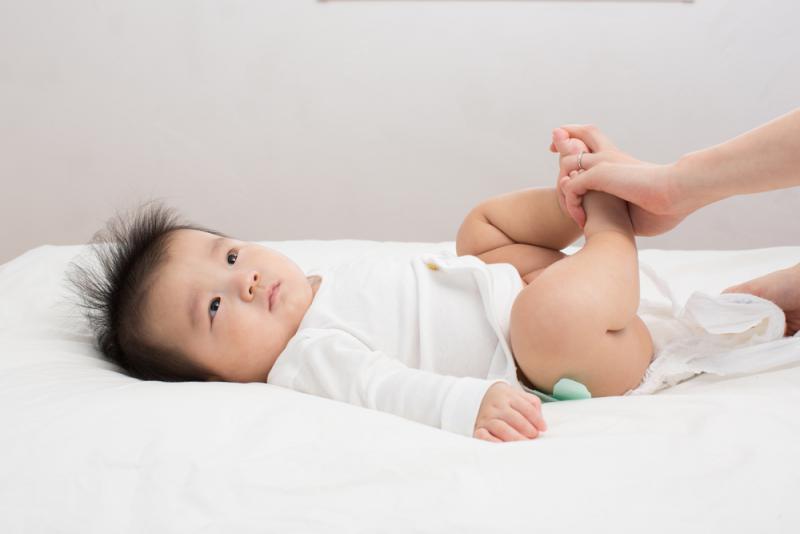
2. Eczema
This is an itchy, red rash that can appear anywhere on your baby’s body. It usually shows up in bright red patches and will be quite sore for your baby, especially if left untreated. It can be caused by various environmental conditions, different products or allergies your baby might have.
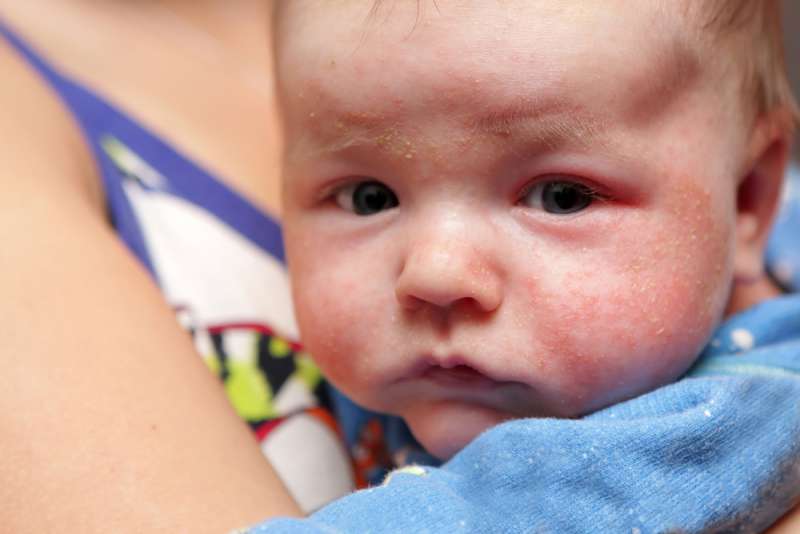
3. Heat Rash
This can show up as small, red bumps, usually in areas where your baby gets hot and sweats such as the neck, armpits and thigh creases. As the name suggests, it’s usually caused when your baby gets too hot. Rather than applying creams and lotions to this rash, it’s best to wash your baby with a gentle cleanser and keep them cool.
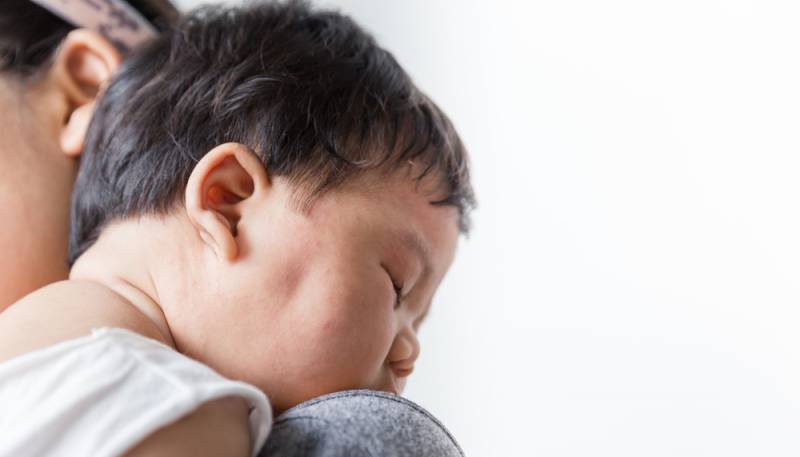
Look out for when your baby is experiencing these skin conditions in relation to any soaps, body lotions, wash detergents, frequency of bathing and room temperature changes – if you notice a pattern then you can make note of the cause and put in place ways to help soothe and prevent your baby’s with sensitive skin becoming worse.
Are all baby skincare products safe?
It might seem like common sense that skincare products specifically made for babies would be risk-free and tailored to caring for your baby’s skin, sensitive or otherwise. Unfortunately this is not always the case.
Many products on the market contain additives and chemicals that can prove irritable to babies, or even cause allergic reactions, as well as aggravating sensitive skin conditions. While many babies won’t experience any of the above or react at all, some babies do develop skin conditions such as eczema as a result – especially if they are already predisposed to sensitive skin.
That is why it’s important to really pay attention to the products you use, even if they state they are designed for babies. It’s also important to know your baby’s skin, what’s normal for your baby and be aware of any irritation that turns up, especially if you’ve started to use any new products.
What products should I be using?
The good news is that the market for healthy, appropriate baby products is picking up – and that includes paying more attention to baby’s with sensitive skin needs. There are some great products on the market that focus on providing a caring, natural bathing experience for your baby. Some of the best ones to look out for include:
1. Johnsons Baby Shampoo & Baby Lotion
Johnsons is a favourite with parents everywhere – their baby friendly and tailored products offer the best care for delicate – and sensitive – baby skin and scalps. These products are currently in the lead for the BabyInfo 2017 Product awards as voted for by mums! See the other products and cast your vote here.
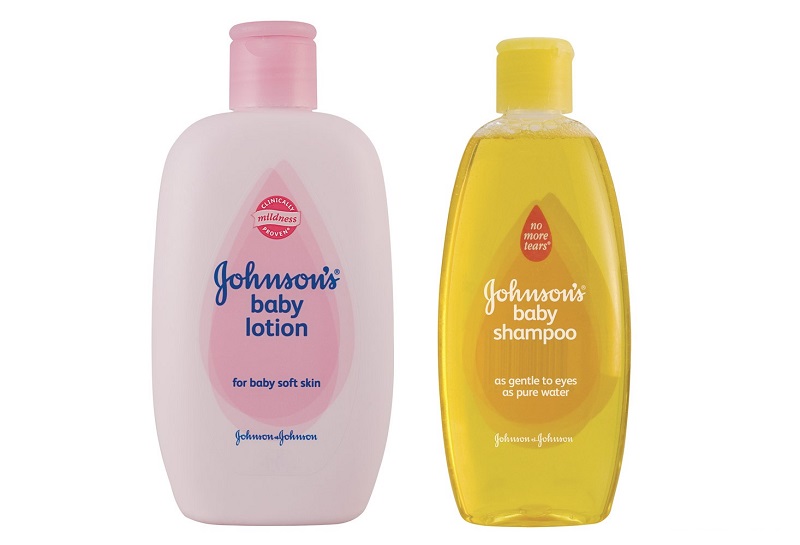
2. Sudocrem Healing Cream for Nappy Rash
Loved and used by mums everywhere, this product ticks all the boxes and it’s currently number one in the BabyInfo 2017 product awards for helping with nappy rash! See the other products and cast your vote here.
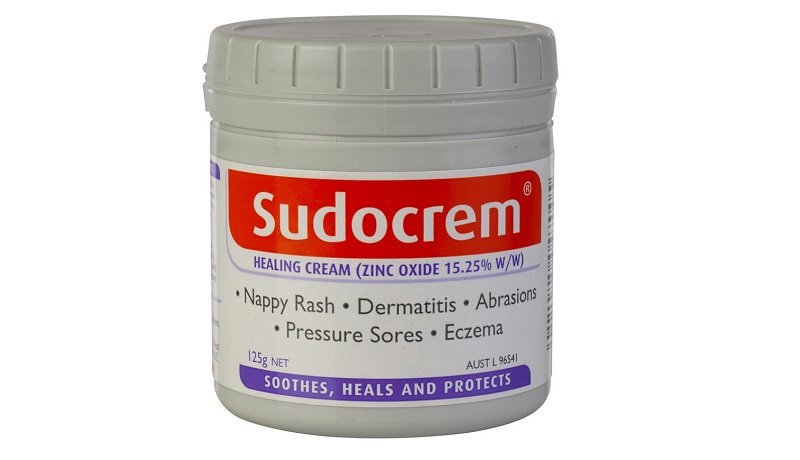
Other products include:
AVEENO® Baby Eczema Care Cream and Wash – this is a great product for babies who have eczema prone skin and the cream and wash can be used together to really protect your baby.
Am-O-Lin Baby Cream – this great lotion is made without harsh chemicals or scents, which makes it perfect for all babies, including those with sensitive skin.
Eco by Naty Baby Wipes – paraben and sulfate free, with no added chemicals or colours, these wipes are completely fragrance free and great for sensitive babies.
What else can I do to help my baby with sensitive skin concerns?
The best thing you can do to help you baby with sensitive skin, is to know how their skin reacts and what it reacts to – so you can make sure you keep your baby happy and irritant free!
But if you’re concerned about the products and what else can be done to support your baby, here are some guidance tips:
1. Less is more for your baby
It’s common sense, but as a newborn and young baby, your baby really doesn’t need that much in the way of soaps and shampoos. Keeping a simple, chemical-free wash routine is the best route to go down. Bathe your baby when they need it – typically every two or three days unless really needed! Excessive bathing can actually dry out your baby’s skin and leave them irritable.
2. Keep it organic
As mentioned with the products above, all natural, organic products are best – chemicals in products and lotions are what can wreak havoc with your baby’s skin so keep it organic where you can. Check the labels on products and see how many ingredients it contains – and if you can pronounce them! If you can’t, it might be worth choosing something else.
3. Opt for fragrance free
Baby products advertised as smelling ‘fresh’ usually have a synthetic fragrance to them – which means chemicals. Fragrance free by the name means it will contain less chemicals – much better for sensitive skin. When checking the ingredients see if ‘fragrance’ is listed as one – if it is, then skip to another product. Your baby will smell amazing anyway when they’re clean – you don’t need to be adding an artificial fragrance.
If your baby develops any rashes or skin irritations that don’t subside, or come accompanied with other symptoms such as a high temperature or wheezing make sure you take them to a doctor as soon as possible. This could be a sign of a more serious allergic reaction that will require immediate medical attention.
As mentioned above, the best way to care for your baby with sensitive skin is to be in tune with how their skin reacts and what it reacts to you. If you’re thinking of trying new products with your baby, make sure you try a small amount first and remember it can take up to 24 hours for skin to show a reaction. Make sure you give your baby a chance to let you know if a product is safe for their skin before you use it all over them.
Making sure you’re caring for your baby’s skin in the best way for them ensures that they – and you – stay healthy and happy.
More Baby Hygiene Articles
How to Clean a Baby’s Belly Button?
Keep It Clean: Baby Hygiene
How to Clean your Baby Properly?
Baby’s First Bath
Caring For Babies With Sensitive Skin
Cloth Nappies: Benefits, Types, and Care
How to deal with nappy rashes?
The wonderful world of baby poo
How to massage your baby?
Baby Nappy Changing Essentials


